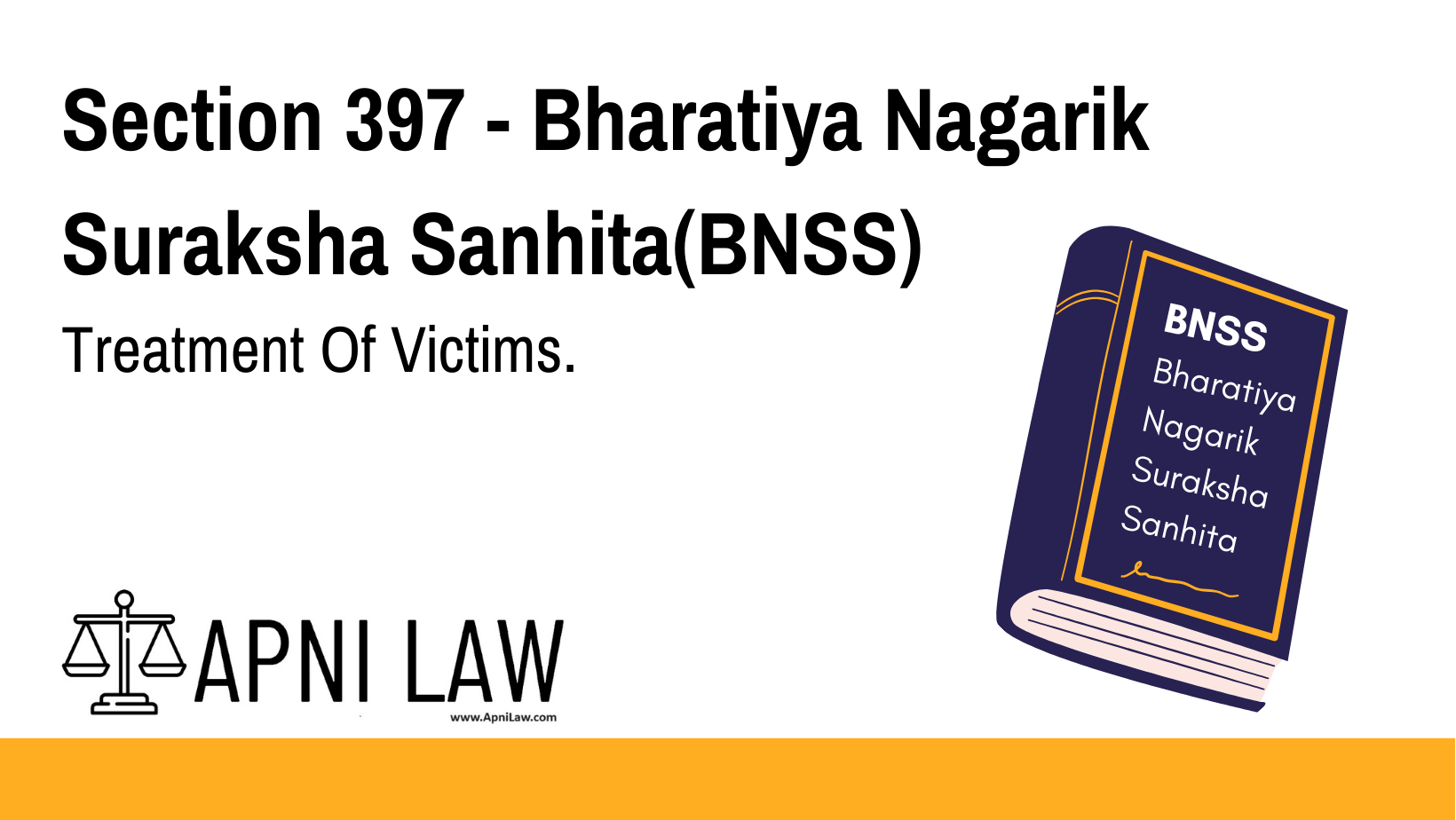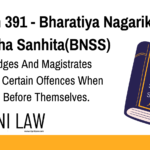Code: Section 397 BNSS
Obligation of Hospitals to Provide Free Medical Treatment to Victims
All hospitals, public or private, whether run by the Central Government, the
State Government, local bodies or any other person, shall immediately, provide the first-aid
or medical treatment, free of cost, to the victims of any offence covered under section 64,
section 65, section 66, section 67, section 68, section 70, section 71 or sub-section (1) of
section 124 of the Bharatiya Nyaya Sanhita, 2023 or under sections 4, 6, 8 or section 10 of
the Protection of Children from Sexual Offences Act, 2012, and shall immediately inform the
police of such incident.
Explanation:
Section 397 of the Bharatiya Nagarik Suraksha Sanhita (BNSS) mandates that all hospitals, whether public or private, provide first-aid or medical treatment to victims of specific crimes, free of charge. This provision ensures that victims of severe crimes, especially those related to sexual offences or violent crimes, receive immediate medical care without any financial burden. The hospital is also required to inform the police about the incident once treatment is provided, ensuring that authorities are alerted in a timely manner.
The section is crucial in the context of victim rights, as it ensures that medical care is prioritized and that the legal process can begin promptly. By making hospitals legally obligated to provide free medical care, it reduces the chances of victims being neglected due to financial constraints.
Illustrations:
Example 1: Immediate Medical Assistance for a Crime Victim
A person is injured during a violent attack and is brought to a hospital. The hospital must immediately provide medical treatment free of cost. Upon treating the victim, the hospital is required to inform the police of the attack. This ensures that the victim receives the necessary medical care, and the incident is reported promptly, allowing the police to take immediate action.
Example 2: Child Victim of Sexual Offence
A child who is a victim of sexual assault under the Protection of Children from Sexual Offences Act, 2012 (Sections 4, 6, 8, or 10) is brought to a public hospital. The hospital must provide first-aid or medical treatment without charge. After administering care, the hospital must inform the police, ensuring both medical assistance and legal proceedings are carried out without delay.
Common Questions and Answers (Q&A):
Q1: Who is responsible for ensuring that medical treatment is provided under Section 397?
A1: All hospitals, whether public or private, are responsible for providing medical treatment to victims of crimes covered under the specified sections, free of charge. The law requires them to act immediately, without waiting for any financial compensation.
Q2: What kind of crimes does Section 397 cover for medical treatment?
A2: Section 397 applies to victims of crimes listed under Bharatiya Nyaya Sanhita, 2023 (such as sections 64, 66, 67, 68, etc.) and Protection of Children from Sexual Offences Act, 2012 (such as sections 4, 6, 8, 10). This includes severe crimes like sexual assault, violence, and other serious offences.
Q3: What if a hospital fails to notify the police after treating a victim?
A3: Failing to notify the police after providing medical treatment is a violation of Section 397. Hospitals are legally required to inform law enforcement, ensuring the swift initiation of legal proceedings.
Q4: Are there exceptions to the free medical treatment provided under Section 397?
A4: There are no exceptions listed in the law. Hospitals must provide immediate medical treatment free of charge for the specified offences, regardless of the victim’s financial status.
Conclusion:
Section 397 plays a vital role in safeguarding the rights of victims by ensuring they receive immediate medical treatment and first-aid free of charge. It applies to victims of serious crimes, particularly those related to sexual assault and violent offences. By mandating hospitals to not only provide care but also inform the police about the incident, this section helps in prompt law enforcement action and the immediate welfare of the victim.
This section emphasizes the importance of victim support, the medical care of those who suffer due to criminal acts, and the swift coordination between medical and law enforcement agencies to ensure timely justice.
By making medical treatment a priority, Section 397 ensures that victims are not only supported physically but that the legal process is activated promptly, improving justice delivery in a timely and compassionate manner.
For legal assistance or more information on victim rights, visit ApniLaw today! 🚀








